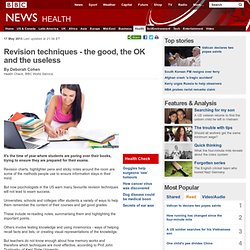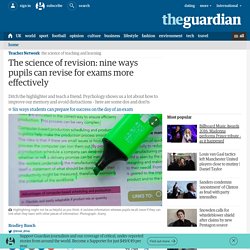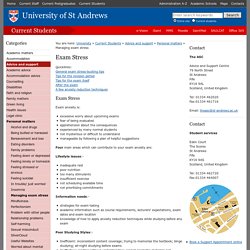

Advice to revise 7 hours a day for GCSEs over Easter 'unbelievable' An expert recommendation that GCSE and A-level students should study for seven hours a day throughout the Easter holidays has been greeted with a variety of scepticism, concern and mild horror by psychologists, teachers and pupils.

Barnaby Lenon, a former headteacher of Harrow, the prestigious independent boarding school that educated the likes of Winston Churchill, Benedict Cumberbatch, the singer James Blunt and the rugby player Billy Vunipola, suggests in a much discussed list of revision tips, a total of 100 hours study over the fortnight long holiday. All topics should be revised at least three times before the exam; studies should start at 9am and finish by 6pm with regular 30-minute breaks and a good night’s sleep at the end.
“Good exam results are made in the Easter holidays,” he writes in a blog for the Independent Schools Council, which he chairs. “Public exam results are important. They can determine the course of your life. “It’s just nonsensical. Revision techniques - the good, the OK and the useless. 17 May 2013Last updated at 21:34 ET By Deborah Cohen Health Check, BBC World Service It's the time of year where students are poring over their books, trying to ensure they are prepared for their exams.

Revision charts, highlighter pens and sticky notes around the room are some of the methods people use to ensure information stays in their mind. But now psychologists in the US warn many favourite revision techniques will not lead to exam success. Universities, schools and colleges offer students a variety of ways to help them remember the content of their courses and get good grades. These include re-reading notes, summarising them and highlighting the important points. Others involve testing knowledge and using mnemonics - ways of helping recall facts and lists, or creating visual representations of the knowledge. But teachers do not know enough about how memory works and therefore which techniques are most effective, according to Prof John Dunlovsky, of Kent State University. Plan ahead. Revision techniques: The secret to exam revision success. But what Cooke is talking about, he explains, is known in cognitive science as the difference between massed learning – when you learn and consolidate material in a short space of time – and spaced learning.

“People who do massed learning will guess that they’ve learnt better than they have – it’s over-confidence,” he says. “If you drill a load of new vocabulary and then test yourself straight away, you’ll have the impression the memory is going to be there for ever.” This makes it dangerous for exam revision. Although packing in all your physics revision before Pancake Day might make you feel smug, it’s probably not a good idea.
“I can memorise a shuffled pack of cards, but if I don’t test myself on them a few days later, I’ll have forgotten them entirely,” says Cooke. Of course, testing is little use if you can’t learn the facts in the first place – an accomplishment often easier said than done, particularly if you were never taught to in a meaningful way. Revision techniques: How to learn boring facts. Five secrets to revising that can boost your grades. How do you get the most out of your revision time, and end up with the best grades you can?

Or, if you're a different sort of student, how can you get the same grades you're getting now, but spend less time revising? Either way, you need to know how to learn better. And fortunately, decades of research carried out by psychologists about learning and memory has produced some clear advice on doing just that. As an experimental psychologist, I am especially interested in learning. Most research on learning is done in a lab, with volunteers who come in once or twice to learn simple skills or lists of words.
Wouldn't it be better, I thought, if we could study learning by looking at a skill people are practising anyway? Computer games provide a great way to study learning: they are something people spend many hours practising, and they automatically record every action people take as they practise. So here are my five evidence-based tips on how to learn: 1. 2. 3. 4. 5. Bitesize. BBC Radio 1 - BBC Advice - Revision Basics. Forget what you know about revising. The science of revision: nine ways pupils can revise for exams more effectively. The weeks and months leading up to exams can be challenging for students (and parents and teachers alike).

Now more than ever, young people seem to be feeling the pressure. So how can students revise better? Which techniques really work, and which don’t? What can students do to improve their memory, mood and concentration? Before you do any revision 1. 2. During revision sessions 3. 4. Leading researchers in the field of memory consider testing yourself as one of the most effective ways to improve your ability to recall information (pdf). 5. 6. 8. 9. University of St Andrews. You are here: University » Current Students » Advice and support » Personal matters » Managing exam stress Quicklinks:General exam stress-busting tipsTips for the revision periodTips for the exam itselfAfter the examA few anxiety reduction techniques Exam Stress Exam anxiety is: excessive worry about upcoming examsfear of being evaluatedapprehension about the consequencesexperienced by many normal studentsnot mysterious or difficult to understandmanageable by following a plan of helpful suggestions Four main areas which can contribute to your exam anxiety are: Lifestyle issues:- inadequate restpoor nutritiontoo many stimulantsinsufficient exercisenot scheduling available timenot prioritising commitments.
